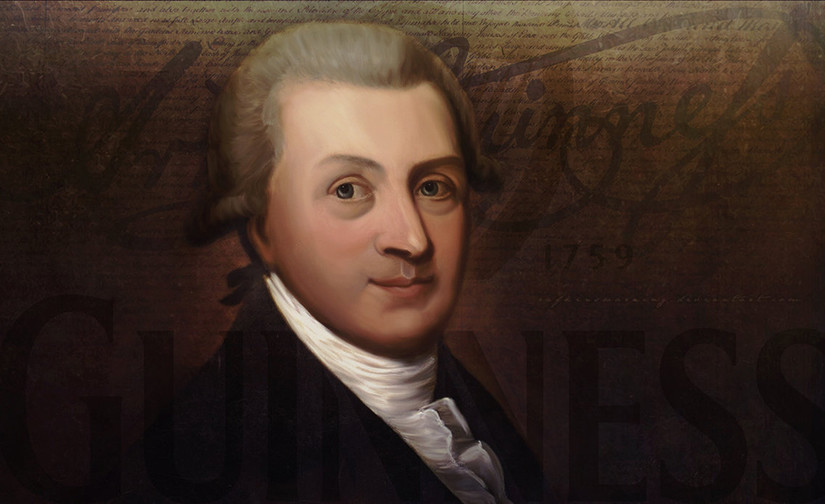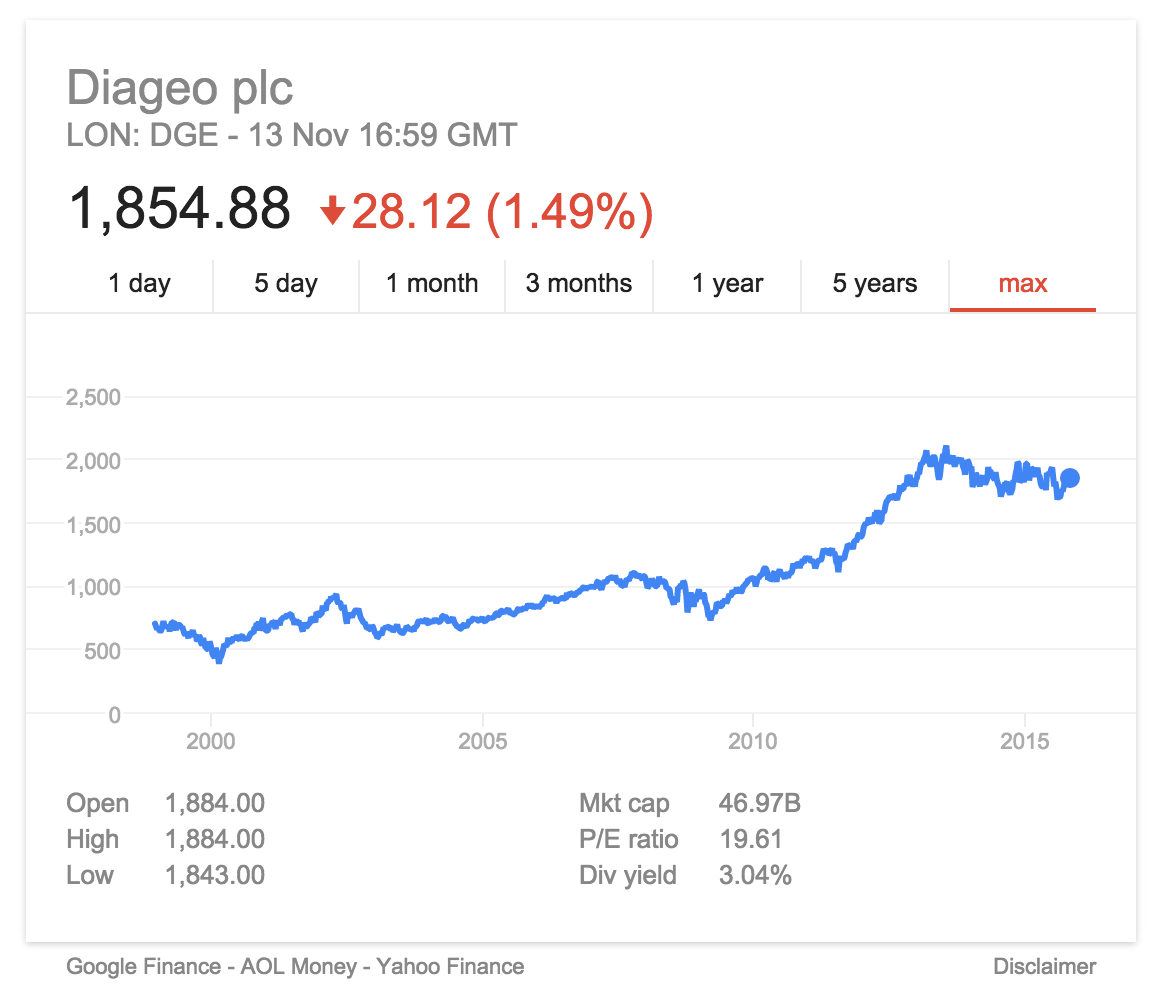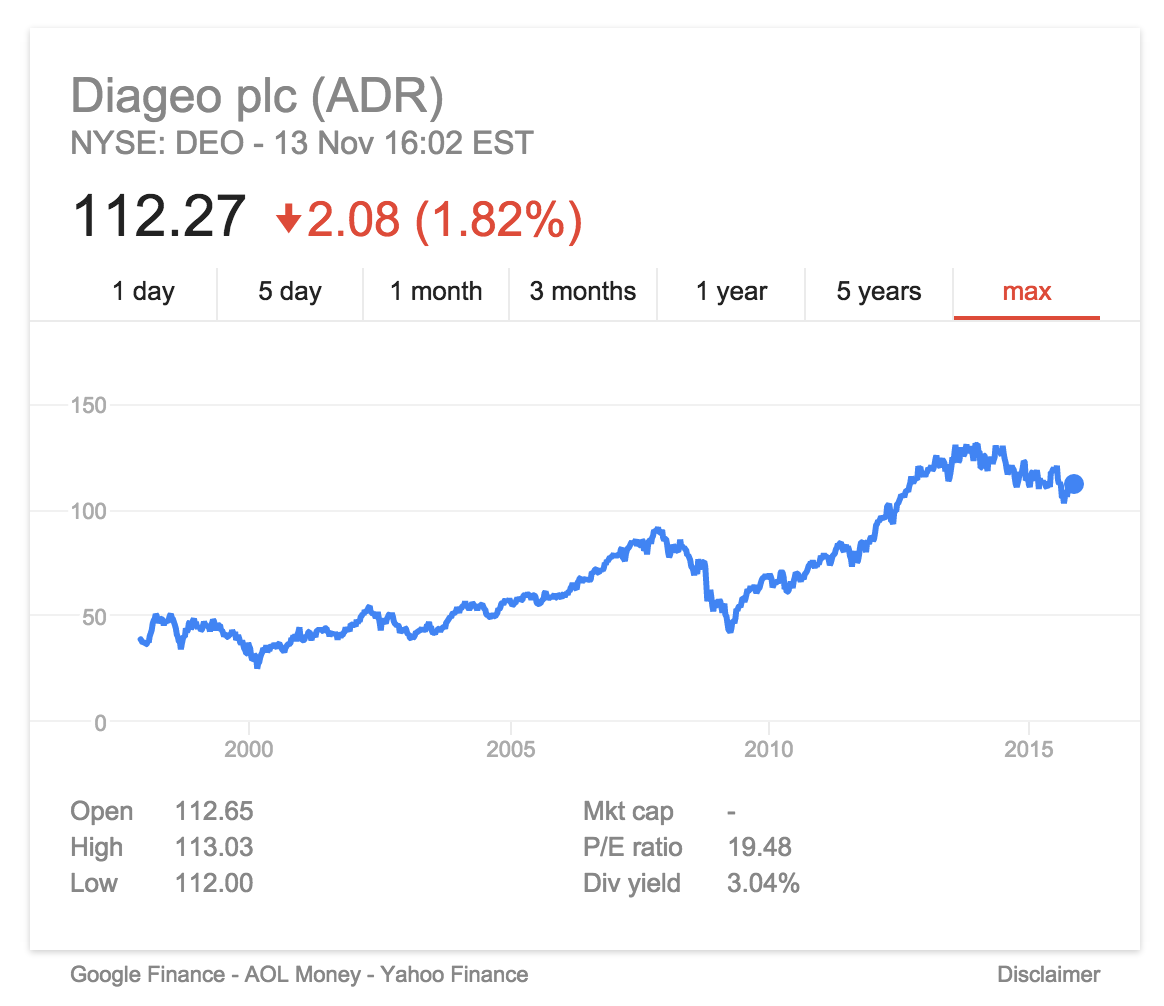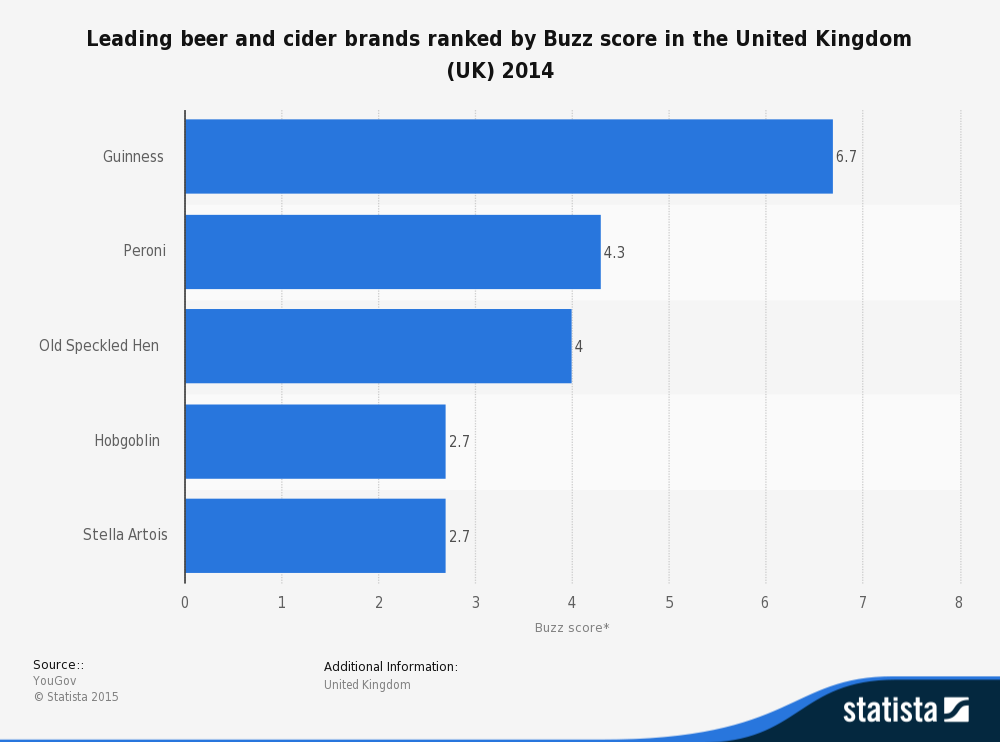History
GUINNESS® the company was officially born in 1759, when the founder, Arthur Guinness, signed a 9,000-year lease on a disused brewery at St. James’ Gate in Dublin. In 1769, the first export went out to England, 6 and a half barrels by ship. After Arthur’s death in 1803, the business was passed down through the family line. He himself has 21 children, so there would not be a shortage of possible inheritors.
- 1759 Arthur Guinness (founder)
- 1803 Arthur Guinness II
- 1850 Sir Benjamin Lee Guinness
- 1868 Edward Cecil
- 1927 Rupert Guinness
in 1840 the first shipment of GUINNESS set sail for New York. It was in 1886 the company became public on the London Stock Exchange. It was the largest brewery in the world during this time (1.2 million barrels produced per year)! With increasing exports, bottling began to happen locally to where the product was being sold and then in 1936 the first overseas brewery was built at Royal Park, London. The 1950s to 70s saw much expansion of GUINNESS being made in breweries around the world (see 50s-70s list below). But the next purpose-built GUINNESS brewery following London erected on Nigerian soil in 1963. That same year the last wooden keg was used. From then on it was only stored and shipped in metal. From the 70s to 80s, GUINNESS again gained wider ground seeing production in more breweries outside of Ireland. (see 70s-80s list below)
1950’s-1970’s expansion
- Kenya (under contract by East African Breweries, for Kenya, Uganda and Tanzania, then Sudan and Somalia)
- Trinidad (under contract, by Caribbean Breweries)
- Sierra Leone (under contract with Sierra Leone Breweries)
- Cameroon
- Mauritius
- Ghana
- Angola (under contract by Eka Brewery)
- Liberia (under contract by Monrovia Breweries)
- Seychelles (under contract by Seychelles Breweries Limited
- Jamaica (under contract)
- Canada
- Australia
- New Zealand
- Nigeria
- Thailand (under contract, by Thai Amarit Breweries)
1970’s-1980’s expansion
- Cote D’Ivoire (under contract).
- Guyana
- St. Kitts (under contract, by St. Kitts Brewery).
- Singapore (under contract by Asia Pacific Breweries).
- Haiti
- Bahamas
- Indonesia (under contract by PT. Multi Bintang Indonesia).
- South Africa
- Tanzania
- Togo (under contract by Brasseries du Benin)
Size, Growth and Profitability
In 1997, the long tradition of being a family-owned business ended when Guinness PLC & Grand Metropolitan PLC merged to form English conglomerate Diageo PLC. The name comes from the Latin word ‘Dia’ for ‘day’ and the Greek word ‘Geo’ for ‘world’. In 2005, The Royal Park Brewery closed, but by this time GUINNESS was based in Diageo’s London headquarters instead of Dublin. Diageo operates in 21 geographically markets worldwide and leads the industry for premium drinks business. The conglomerate produces 6.5 billion liters of its spirit, beer and wine commodities each year from over 100 locations in more than 30 countries.
They have five geographical reporting segments listed here:
- North America
- Western Europe
- Latin America
- Asia-Pacific
- Africa combined with Eastern Europe and Turkey
Diageo is most profitable in its North America segment, which includes U.S. Spirits & Wines, Diageo-Guinness U.S.A. (DGUSA), and Canada.
The full family of brands is listed below:
- Global Giants: Johnnie Walker, Smirnoff, Captain Morgan, Baileys, Tanqueray, Guinness
- Local stars: Crown Royal, Yeni Raki, J&B, Buchanan’s, Windsor, Grand Old Parr, Bundaberg Distilling Co., Bell’s, McDowell’s No.1, Ypio’ca, Cacique, Shui Jing Fang
- Reserve: Johnnie Walker X-R The Legacy Blend, John Walker & Sons Odyssey, John Walker & Sons King George V, Johnnie Walker. Blue Label Trophy, Johnnie Walker Gold Label Reserve, The Singleton of Glen Ord, Ketel One Vodka, Ciroc, Tanqueray No. Ten, Zacapa XO, Tequila DonJulio, Bulleit. Bourbon
The company is listed on the London Stock Exchange (LSE: DGE) and the New York Stock Exchange (NYSE: DEO) The growth and profitability between 1999 and 2015 is shown below for each of these:
Scope of the business
GUINNESS produces the world’s favourite stout beer. It also owns Smithwicks Irish Ale, created Harp Lager and makes Kilkenny. The business branches out beyond beer. In 1984 it opened the Hopstore to visitors at St. James’ Gate Brewery. This later became known as the GUINNESS visitor center in 1988 and since 2000 has been known as the GUINNESS STOREHOUSE™. This is the number one tourist attraction in Ireland. It showcases a special tour of brewing techniques, exhibits the company’s history of marketing, and pours visitors (of drinking-age) a free trial pint of the world’s favorite stout. It sees visitors from all over the world included many famous celebrities. The company also sells merchandise, emblazoned with its world-renowned branding.
Competence
This GUINNESS name is still standing after more than 250 years with huge sales world-wide which shows competence and uniqueness in the recipe it provides. These days GUINNESS is going beyond its product sales competence by implementing sustainability and responsibility initiatives that positions the brand as a corporate citizen. GUINNESS strives to support every link in its own production chain and goes beyond by helping to relieve problems of alcohol misuse in society, safeguarding water and the environment, contributing to socio-economic development of the communities in which they operate, providing employee support, integrating standards further down the supply chain, setting up a sound governance structure and code of business conduct and creating a culture that demands integrity all-round in its practices.
Reputation
Overall, GUINNESS has a great reputation. It is the only global stout brand available and is the world’s favourite stout. In 1992 the concept of the Irish pub moved across Europe and by 1998, 2,500 of them were selling GUINNESS Draught worldwide. GUINNESS is also known for the fun and creative marketing campaigns that capture the heart and soul of the brand. The company has won many awards for these campaigns throughout the years. In 1996, the Queen’s Award was given to GUINNESS for Export Achievement for the 3rd time. In 2004 the The GUINNESS STOREHOUSE™ welcomed its 2 millionth visitor since it opened in 2000. In the United Kingdom, an average Buzz score of 6.7 in 2014, ranking GUINNESS highest of leading beer and cider brands.
Strengths
GUINNESS has been around for many years, therefore the business has considerable experience and knowledge for producing and exporting the product. The company also has a history of going beyond the bottom line too. Arthur Guinness was a human rights advocate and the company has carried on Arthur’s philanthropic nature throughout the generations. This gives the company strength in the current market that requires businesses to practice corporate social responsibility. Since it is a traditional practice to care about the community, the company does not look as though the motivation is reactive to this demand, but more sincere and altruistic. GUINNESS also has strength in its marketing, historically and current. One example where a marketing effort exploded into a bigger thing is which the invention of the Guinness book of World Records. It was originally intended as a marketing giveaway, a compendium of little-known facts, invented to settle obscure debates one might find discussed in pubs in 1954. It is now a publishing sensation. The merger into Diageo brought GUINNESS into the family with premium brand positioning and a large market in the U.S. and since 2000 North America brews its own GUINNESS Extra Stout. Innovation is another one of the GUINNESS strongpoints. In 1988, GUINNESS provided the first ‘widget’ beer, GUINNESS Draught in a can and won the Queen’s award for technological achievement. Following that, in 1999, Draught in bottles was launched using a new ‘rocket widget’.
Weaknesses
Being owned by a large conglomerate can also be seen as a weakness. Current trends show backlash and boycott from consumers on huge multinational corporations that cause harm to communities (socially and economically). This reputation is sometimes blanketed across all huge corporation without further investigation. For example, when a corporate sponsored holiday dubbed “Arthur’s Day” was organised by Diageo in 2009 to commemorate the 25th anniversary of GUINNESS, it was met with some negative publicity. Some high-profile artists even spoke out against the holiday and Huffington Post called it “Diageo Day”, criticising it as a marketing ploy to raise GUINNESS sales. The journal even called for a boycott of the event. Some other weaknesses for the company include the threat of widespread alcohol abuse damaging the reputation and the threat that fossil fuel and water shortages have on production and cost to consumers.



